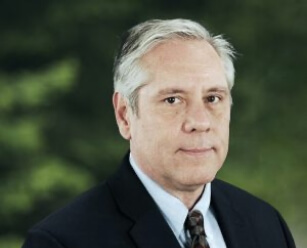 By Harvey Abouelata, Vice President of Commercial Solar, Solar Alliance
By Harvey Abouelata, Vice President of Commercial Solar, Solar Alliance
Building a better community necessitates building a more secure community.
It is doubtful that most mayors throughout the United States, like Knoxville Mayor Indya Kincannon, thought they would ever need to navigate the complexities of a pandemic. And our state didn’t believe it would have to deal with countless severe storms during our winter months.
Winter weather certainly showed its ability to disrupt daily life when the extreme cold snap brought down the Texas power grid in February 2021. This weather left millions of homes and businesses without power during freezing conditions and resulted in over $195 billion in property damage. Tragically, the state has reported nearly 250 deaths as a direct result of the power outages and storm, with some estimates closer to 700.
Some might think the Texas scenario was the “perfect storm” or a once-in-a-lifetime tragedy. But I think it serves as a reminder that we must think more critically about how to ensure the health and safety of our city’s residents – keeping the lights on and the power running – even in the face of natural or other disasters. City leaders, local utilities and everyday community members must work together to invest in our energy infrastructure and make sure that what happened in Texas doesn’t happen in our state.
One way to offer environmental, economic and energy security is through the strategic deployment of a solar microgrid. Powered through solar with battery storage and a natural gas generator, this microgrid can offer lower costs for the grid through peak shaving and remain operational as an independent system if the grid goes down.
Creating a more secure future for our community with solar microgrids
Microgrids are quickly becoming an ideal solution for cities wanting to reduce their carbon footprints, lower costs and keep their residents safe. But cities don’t always have ample available land to install fields of solar arrays or other advanced energy solutions.
What if Knoxville installed solar microgrids on the roofs of grocery stores around the community? No one understands the importance of available space and tight margins like grocery stores. There are plenty of expansive grocery store roofs around the city that are being underutilized and could become positive assets through the installation of solar microgrids.
And in an emergency, what do people need most? Food, fuel and water. With a microgrid, grocery stores could become safe havens for residents and first responders, saving lives and keeping the community running. This kind of partnership would be a win-win-win for grocery stores, utilities and cities, offering environmental, economic and resilience benefits for all.
Environmental
The environmental benefits of installing more solar in our community are obvious. The City of Knoxville has already pledged a 50% reduction in greenhouse gases for municipal operations by 2030 and an 80% reduction for the entire community by 2050.
Meanwhile, the Knoxville Utilities Board announced that 20% of the area’s electricity will be generated by solar energy through the Tennessee Valley Authority’s Green Invest program. Solar Alliance recently partnered with KUB for the design and installation of a 1-megawatt solar project to help the utility meet this goal.
With multiple megawatts of solar installed on grocery stores around the city, we can further decrease the community’s carbon emissions, relying less on fossil fuels and helping usher in its clean-energy future.
These projects could also allow for the installation of electric vehicle charging stations, keeping in line with the global interest in transportation electrification and concentrated efforts of our state to become a leader in the EV supply chain. Why not use EV charging with a microgrid to better position Knoxville for an all-electric, environmentally friendly future?
Economic
Solar microgrids also offer economic benefits. For instance, say an unprecedented heat wave hits our community during Independence Day celebrations. Wouldn’t it be better to have dozens of grocery stores capable of balancing the load and keeping air conditioners on without a price hike?
Or with the rise of EV adoption, what will happen when a large portion of the city wants to charge their vehicle after they get off work at 5 p.m.? With microgrids, utilities can flip the switch, turning on generators to divert necessary power.
Microgrids make the grid more robust, allowing utilities to respond to demand-spike scenarios. This response not only keeps costs down for the local utility, but it won’t result in higher costs for ratepayers, keeping everyone happy, including grocery stores that would benefit from lower daily operating costs with solar electricity.
Resilience
Considering the recent tornadoes and flooding across our state, we’ve sadly learned how important it is to meet a community’s basic needs during a time of turmoil. Without food and clean water, residents suffer. Without fuel, first responders can’t do their jobs.
Building a resilient community necessitates building a resilient power grid. From the winter weather in Texas to the blackouts caused by wildfires in California, we can’t let the grid fail Tennesseans.
Microgrids allow utilities to divert power where it is needed most, providing an extra layer of protection in good times and bad. Additional elements like EV charging stations can enhance the community’s capacity for “fuel” for its “food, fuel and water” emergency needs, keeping first responders doing what they do best. And creating safe havens at grocery stores will give city leaders more peace of mind that their residents will be safe.
Solar microgrids can offer everything from cost savings to environmental benefits to community security. Isn’t it time to consider innovative grid solutions in Knoxville?
Learn more about TAEBC member Solar Alliance and its Renewable Radar program. Also, sign up for our newsletter to learn more about our members, advanced energy news and upcoming events. Or, if you’re not already a member, become a member today!
